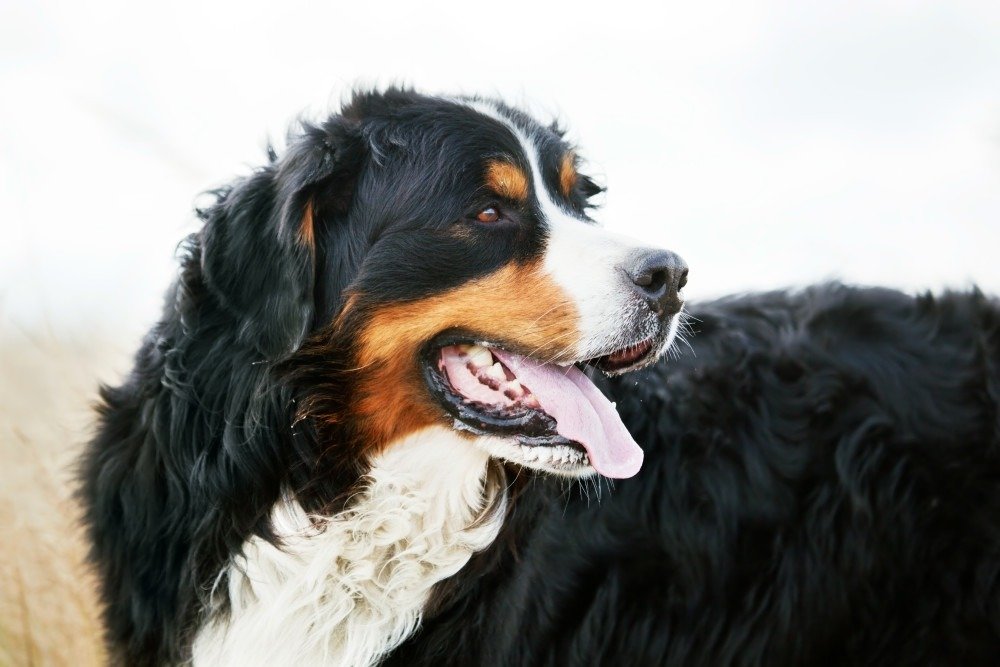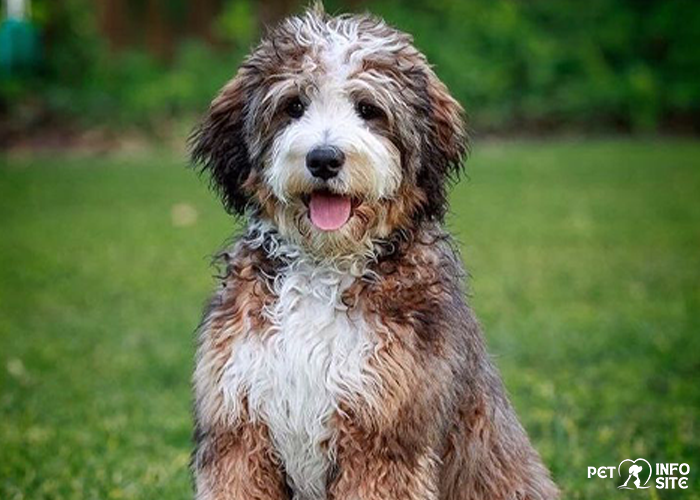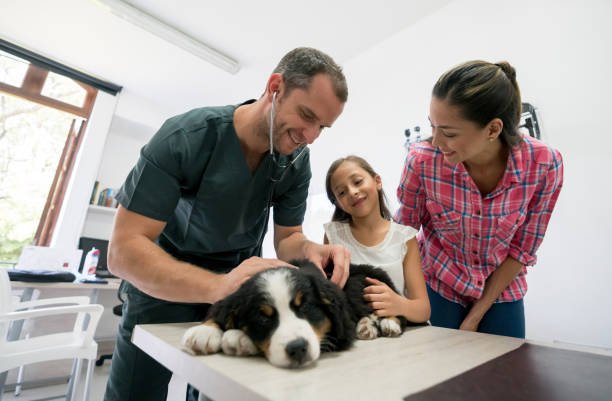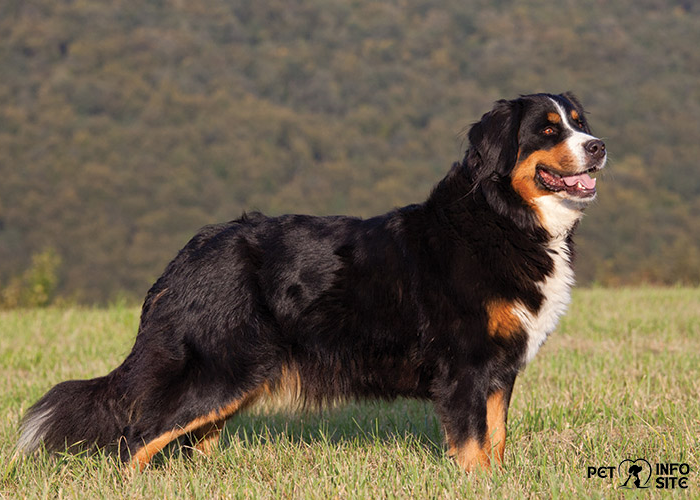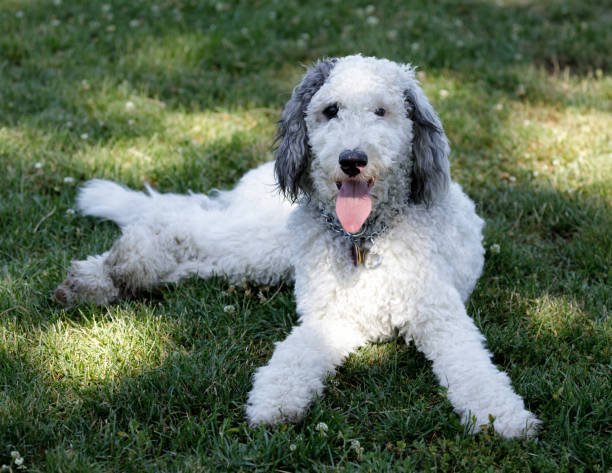Using View: Bernese Mountain Dog Rescue Experience with Visit
Supporters are the countless heroes of the wonderful pitch of animal rescue. Although they give their time, knowledge, and care to save the lives of needy animals. Those who spend their energy on saving and taking care. Therefore Bernese Mountain Dog Rescue belong to these helpers.
Yet these superb and kind giants are known for their piety and affection and then find themselves in difficult settings. From health issues and social problems to hurt and rejection. In reaction to these difficulties, a network of dedicated people and groups has formed. Loyal to improving lives. Bernese Mountain Dogs by programs for rescue, treatment, and moving.
This article tests the vital role that people play in the rescue of Bernese Mountain Dogs. Importance the variety of job risks that exist and the major effects and then users have the well-being of these beloved dogs. Therefore supporters provide their knowledge, resources, and steadfast word. To guarantee that every Bernese Mountain Dog and Gets the attention, love, and second shot they need. From care and journey help to education and raise.
By working together, they not only rescue lives, but they also inspire them. Good change in the regions they live in by hope. Therefore the pet ownership is right and increases awareness. Although the value of rescuing and protecting animals. Come explore the world of rescuing Bernese Mountain Dogs with us, and join us in having fun. The generous efforts of people who are changing the world and one happy head at a moment.
Goals of Emergency Bernese Mountain Dog Rescue:

Teams for Quick Reaction:
- As a result these teams are made up of set workers with training who are always ready to go into action. They often have first aid kits, covers, carriers, chains, and other basic rescue gear with them.
- Therefore to handle emergency calls about Bernese Mountain Dogs who are in the effort. Call centers were made. Afraid people, police, or animal control groups may make these calls.
- Although the fast reply team works with the town’s officials to locate the helpless dog after receiving. An urgent call and then getting orders or cards to enter personal property may be necessary for this.
- As soon as the team arrives, they promptly assess the situation and prioritize the sites to resolve. Care is given to dogs that are hurt or in danger of death.
Medical Arranging:
- To provide a secure environment for early control and treatment, temporary treatment stations are made close to the rescue site.
- Although every Bernese Mountain Dog that is saved is tested by skilled doctors and check workers, who classify them according to how serious their cuts or illnesses are.
- On-site basic medical treatments are provided, such as covering up, cleaning, and cleaning wounds, providing pain tablets, and calming serious situations.
- Dogs in more serious conditions could be taken straight to extra rooms or local check clinics for further check and medical care.
Method of Moving:
- The real aspects of getting rescued Bernese Mountain Dogs out of danger are set by rescue groups. This means setting up cars that are fit for moving animals and making sure that there is sufficient room, breathing, and security.
- Although experts with experience in animal care and organization are tasked with traveling with the dogs and then offering them comfort and care along the way.
- Pre-arrangements occur with getting creations, such as raised houses or brief shelters, to promise a smooth transfer and current care upon transfer.
- Moving teams may work with other groups and rules to gain more carrying and help in the event of large-scale rescue efforts or difficulties.
Partnerships with Shelters and Animal Control:
Programs for Firms:
- To improve direction and communication during rescue actions, local animal control experts and rescue groups create approved partnerships.
- Animal control officials get regular learning sessions to help them recognize the warning signs of abuse, rejection, or suffering in Bernese Mountain Dogs.
- A smooth change of rescued dogs from the first rescue effort to the charge of animal control groups is helped by rules that guarantee legal respect and proper certification.
- In the show, efforts are accepted to address general issues including public affairs and moral pet ownership education that give to the recovery and welfare foods of Bernese Mountain Dogs.
Support for Shelters:
- Rescue groups run full shelters with vital help in the form of money food, and human work.
- When a shelter’s size is reached, plans for brief care are established for rescued dogs, make sure they get the care they need while they wait to be hired.
- To enhance the good and adaptability of rescued dogs, rescue groups and protections work together to provide more services and social calculations.
- For dogs considered unadoptable because of communication or medical problems, animal rescues may help shelters locate change places, such as refuge services or expert rescue groups.
Management of Acceptance:
- Rescue groups study the nature, health, and behavior of the rescued Bernese Mountain Dogs in close teamwork with shelters and agreement services.
- To raise awareness of rescued dogs and improve their chances of arrival in keen lasting homes, placement events and fights are planned.
- To guarantee responsible jobs, forceful screening actions are put in place for possible adopters, including house calls, situations, and interviews.
- Families who agree get materials and regular support to help ensure active agreement and to further the welfare of the dogs in their charge.
Techniques for Healing Bernese Mountain Dogs After Rescue
Physical Treatment: Taking Medical Needs Into Account
First Testing:
- Every Bernese Mountain Dog that lands at the rescue center is given a full checkup by doctors. Therefor this calculation resolves to find any present health issues and provides a basis for follow-up treatment.
- During the exam, cuts, infections, worms, and other possible medical conditions are looked for and then tested for.
Animal Medical Attention:
- Each dog receives a modified therapy designed to meet its unique healthcare needs and according to the results of the first tests.
- Although chemicals that may be used for a change of diseases include nutrients, clean drugs, and painkillers.
- Injuries, damaged skeletons, and other diseases may need operation.
- Expert animal doctors carry out operations that inspire healing and repair damage.
Help for Nutrition:
- In the same way Bernese Mountain Dogs to recover and be healthy, they must eat a together diet. Therefore Balanced diets by dietitians or doctors started on the condition, age, and dietary needs of each real dog.
- To address particular diseases, such as working weight, indigestion, or eating reactions and specific eating habits might be helpful.
- To increase the body’s defenses, encourage twisted healing, and enhance coat and appearance, additions rich in fats, elements, and chemicals could be shown.
Exercises for Recovery:
- For rescued Bernese Mountain Dogs to recover power, movement, and action, physical treatment is essential.
- Modified training programs including therapy, jumping, low-impact workouts, and given by trained experts in injury recovery.
- Although these workouts improve choice of measure, muscular nature, and motion in joints while pulling down stress on hurt or improving body areas.
Pain Control:
- During the recovery process and pain treatment is key to the comfort and general well-being of improved Bernese Mountain Dogs.
- When a dog is in pain, doctors measure its degree of discomfort and change medicine doses as basic to release it without risking its general health.
- Apart from using treatment for pain and then other options including laser treatments, heat/cold analysis, and massage may be used to enhance discomfort and help recovery.
Behavioral Recovery: Getting Rid of Fear and Pain
Customized Calculation:
- In-depth exams by expert behaviors or experts in animal behavior to understand the mental and emotional conditions of rescue Bernese Mountain Dogs.
- Therefor these examine take into account the dog’s nature, past experiences with socialization, and any suggestions of fear, anxiety and power.
- It is possible to realize certain behavioral problems and causes by studying the dog’s body speech and relations with humans and other animals, and reactions to different events.
Training using Positive Help:
- The main goal of reward-based training systems is to support helpful behaviors with toys, approval and food, or other rewards.
- To teach major loyalty orders, and help calm and self-assured conduct. And then create confidence between the dog and the operator, guides use science-based and force-free methods.
- Although training sessions that are careful and determined help change the dog’s attitude by replacing acceptable answers with unwanted ones.
Conditioning and Relaxation:
- Getting used is the process of leading the dog step-by-step, to events or locations that cause worry or fear in them.
- Done the use of opposition plans, a dog’s emotional reaction to fear to one of relaxation or pleasure when stressful events with good skills like play or rewards.
- As the dog gains comfort and confidence, trainers increase the difficulty of the exercises, working at the dog’s speed and starting with low-intensity sessions.
Activities for Rising Confidence:
- Playing games and joining in planned activities helps dogs learn new skills, improve their self-worth, and expand their relationship with their caretakers.
- Challenge collectors with informative games, and fun games excite the mind and help problem-solving skills.
- A dog’s mixing skills, trust, and ability to connect well with humans and other dogs. May all be improved by joining in group exercise sessions, speed lessons, or animal games.
Kindness and Grace:
- It takes patience, effort, and care on the part of groups, trainers, and parents for efforts at recovery to succeed.
- Bernese Mountain Dogs who may have skilled severe upset or mistreatment, which might have left them fearful, disbelieving, or showing odd actions.
- Helping these dogs get outside their previous events and grow in their new homes needs providing a loving and caring environment with regular habits, calm direction, and help from humans.
Rules for Getting Recovered Bernese Mountain Dogs
Examining Attracted Users:
Method for Use:
- A full education request form by possible adopters. This form meets full information on the adopter’s goals for receiving a Bernese Mountain Dog, as well as their lifestyle, living conditions, and pet-owning history.
- Therefore the request is the first step of the process of running and offers important information about the skill and loyalty of the person who decides to provide a caring open home.
Thoughts and Sources:
- In-depth talks by support managers with hopefuls to learn more about their background, although reasons for defective agreement, and size to care for a Bernese Mountain Dog.
- Friends, relatives, and neighbors serve as personal places to get more awareness into the adopter’s nature, way of life, and past pet ownership.
- To confirm the adopter’s history of past protection of pets, piety to protective care, and ability to provide quality medical treatment and doctor reports.
House Call:
- A professional donor or placement coordinator will do a home visit to see if the possible adopter’s living situation is suitable for a Bernese Mountain Dog.
- Several factors during the house visit, and including the property’s safety and protection, its lack of suitable jail areas or defense, and the environment’s general suitability for a big breed dog.
- During the stay-at-home, there’s also a chance to talk about any worries, provide advice on how to animal-proof the house and make sure everyone in the family is ready for the duties that come with having a pet.
Finding Good Families for Dogs:
Conducting Behavioral Testing:
- In-depth behavioral evaluations move out on rescued Bernese Mountain Dogs to determine their nature, attitude, and any unique requirements or behavioral issues.
- A dog’s fitness for a variety of settings and lives exists through trained behaviors or adoption managers observing the dog’s responses to humans, other animals, and other environments.
- Suitable matches that fit the adopter’s choices, degree of expertise, and capacity to care for the dog’s requirements via the behavioral evaluation.
Study of Compatibility:
- To understand the tastes, way of life and goals of prospective adopters, adoption experts therefore they work with them.
- Adoption planners control possible matches that provide the greatest fit for the dog and the new owner based on the data collected throughout the process of screening and the unique qualities of the dog.
- Age, energy level, exercise demands, and safety for kids and other animals, and any specific medical or behavioral foods are all taken into account.
Get-together:
- In a fully controlled setting, possible adopters are welcome to meet those rescued Bernese Mountain Dogs and then they are considering embracing.
- During the meet-and-greet, the adopter may mix with the dog, see how they behave, and fix whether they will fit in with their new family and way of life.
- During the meet-and-greet, adoption leaders inspire starts, answer any demands or fears that may come up, and provide advice and support.
Session Duration:
- Moreover, Rescue groups often provide a test transfer period when the dog stays with the hopeful home for a short while to make sure the two of them are a fit match.
- During the test time, the adopter may get a feel for daily life with the dog and fix whether they are a good fit for a domestic.
- During the testing time, approval experts are on hand to provide support, way, and help, resolving any challenges or issues that may come up and making sure an effortless move for the adopter and the dog.
Completion of Adoption:
- Once the embracing is complete when the adopter and the helping group are happy with the match.
- All adoption-related records are complete, including chip enrollment, medical documents, and adoption forms.
- After the adoption costs are paid, the dog into their new family.
Bernese Mountain Dog Rescue Service Options
Programs for Child Care:
Particular Care: Raise parents may provide Bernese Mountain Dogs that have been rescued. Particular care that to their specific requirements.
This might include giving medicinal products and taking care of long-term medical issues. Helping dogs who are healing from surgery or injuries with medical cures.
Behavioral Recovery: To treat fear, anxiety, or violence, helpers may use behavior. Change programs, socialization workouts, and behavior therapy. In stand-in homes for dogs with disorders of behavior.
Puppy Care Program: Several rescue groups have projects keen. To the adoption of Bernese Mountain Dog pups.
Temporary parents provide pups with a loving home for their early growth. Help with socialization and training, and get them ready for adoption.
Cancer Care: Senior or very sick dogs may also get end-of-life care from foster parents. Who will provide them with respect, comfort, and affection in their last days?
Offers may have a significant impact on the health of dogs. And the experiencing wasting or deadly illnesses by taking on this caring role.
Helping with Transportation:
Overnight Transit: While a dog or carrier is traveling a great distance. People may offer their houses an overnight rest break. Therefore this gives dogs a secure and pleasant place to rest, get treatment, and continue traveling.
Safety Teams: Committed transportation workers may be members of these groups. Prepared to move in the event of a major natural disaster. Although animal abuse incident, or urgent rescue effort. In times of need, these volunteers are vital. In helping to evacuate animals from danger and provide rapid help.
Cross-Country Transfer: Transport workers may take part in cross-country. Transfer operations for dogs. From places where food is short or overrun. They work along with transport networks, rescue groups, and shelters to make. It is easier for dogs to places with more resources and placement prospects.
More Volunteer Possibilities:
Workshops for Teaching and Training:
Care parents, consumers, and members of the public may enjoy the organization. Help educational seminars and classes by people with experience. In canine behavior, education, or animal health. Subjects covered might include information particular to the breed. Positive training methods, and basic dog care for Bernese Mountain Dogs.
Social Relations Events: To highlight moral pet ownership, and educate the public. About Bernese Mountain Dog Rescue, find possible adopters and employees. Therefore Volunteers may represent rescue groups at local events, pet fairs, and adoption fairs.
Virtual Work Roles: Those with time or location limits that prevent them. Although participating in hands-on volunteer work may be able to help with website upkeep. Online presence management, graphic design, publication, or blog post writing. Virtual donations campaign coordination.
Conclusion
People are the inspiration and actors of change in the field of Bernese Mountain Dog rescue.
For dogs feeling hardship, their dedication and unselfish commitment act as a lifeline. At the forefront, providing them with not only a brief opportunity but also a road. A better future full of love, care, and friendship. Therefor we get a sense of the transformational potential of compassion and strength. Group action when the major impact of volunteers in the Bernese Mountains Dog Rescue.
Every happy ending, every heart restored and every life changed. The unshakable dedication of people who refuse to ignore sadness. Yet, the trip is far from over. While we welcome the progress achieved in the rescue of Bernese Mountain Dog . Recognize those challenges that still need to be overcome.
There is more work, from pushing tougher laws. On animal welfare to raise public understanding of ethical pet ownership. However, in the middle of the difficulties, there is unending confidence.
We hope that every person who offers support, although every flexible who offers their heart. Apartment and then every supporter who speaks out in favor of the cause will bring us. One step closer to a future in which every Bernese Mountains Dog. Secured, and allowed for success.
FAQs
How can You help in the rescue of Bernese Mountain Dogs?
One way to get active is to work with rescue groups and care dogs for needy families. Finally help with transportation, or contribute to awareness and educational programs.
Which qualifications or abilities are necessary for helping?
We welcome workers with a variety of experiences and abilities! Therefor the most crucial traits are kindness, a desire to learn, and a love of animals.
If I find myself pressed for time, nevertheless, I wonder, is it still possible for me to give back?
Of course! Additionally, many service options are flexible and then allowing you to give. According to your busy life and capacity.

